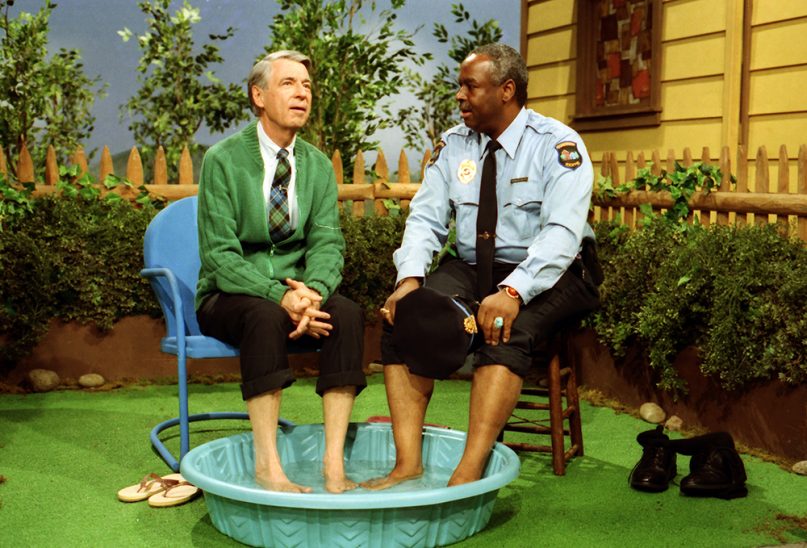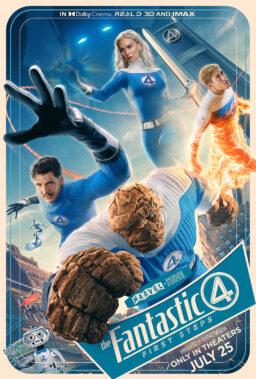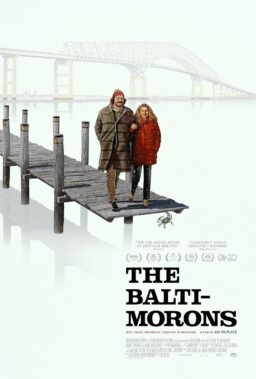The last day of Ebertfest featured two narrative features and two docs, all with a sense of celebration for the values of compassion and journalism that defined Roger’s legacy. The films screened on Saturday were “Maya Angelou: And Still I Rise,” “Won’t You Be My Neighbor?”, “Almost Famous” and “Sideways,” the last two picked films by critic Richard Roeper, who was being honored by the fest.
Co-director Rita Coburn introduced the Peabody Award-winning film beforehand, saying that “it was really important that the story of this woman was told in this time, in this form.” She added, “I think what endears her to us is her humanity, the fact that she has compassion. She has been through so much, and she tells it.” She shared a lovely note about the festival: “It makes me feel strong. It makes me feel capable. It makes me feel like I can tell more stories. And most of all, it makes me feel like I want to come back, y’all.”
After the film, Nate Kohn and Chaz Ebert presented Coburn with one of the festival’s Golden Thumb statues, cast from Roger’s hand. But they had a surprise for her: Coburn was to be the first recipient of the brand new Icon Award. Chaz then moderated a Q&A with Coburn, Matt Zoller Seitz, and Nate Kohn. Their discussion included the importance of making films about icons who are not represented in history books, how Coburn seemed destined to direct a project about Maya Angelou, how Coburn found the narrative through an endless amount of material, and more.
To watch Rita Coburn’s introduction to Maya Angelou: And Still I Rise, click here; a full video of the Q&A is below:
The second film that played Ebertfest was Morgan Neville’s “Won’t You Be My Neighbor?”, the 2018 documentary about Fred Rogers and his genius TV show, “Mister Rogers’ Neighborhood.” Director Morgan Neville was in Champaign-Urbana to introduce the the film, who prefaced the importance of the movie in his filmography—he always approached his previous movies like “Twenty Feet from Stardom” and “Best of Enemies” as therapy for his respective subjects. But in the case of the abundant empathy and compassion in “Won’t You Be My Neighbor?” it was therapy for him. It became clear during the screening that the film is a perfect pick for Ebertfest—that not only could it play annually without seeming out of place, but it’s not radical in slightest to claim that Roger would have loved it.
And as the Virginia Theater crowd recognized, the movie is therapy for everyone, with laughter and sniffles filling the theater during and after the screening. After the show, Neville received Ebertfest’s third Humanitarian Award, previously given to Norman Lear and Stephen Apkon. Neville then participated in a Q&A with Chaz Ebert, Matt Fagerholm and myself, where the discussion included what bits of Rogers history didn’t make it the film, all of the archival material about Rogers that practically ready for a documentarian to use, and Neville’s dedication to empathy as a filmmaker. The Q&A also featured a special moment in which Matt Fagerholm read a letter response that he had received from Fred Rogers when Matt was just five years old.
To watch Morgan Neville’s introduction to “Won’t You Be My Neighbor?” click here; a full video of the Q&A with Neville is below:
The last two films were dedicated to Chicago critic and “At the Movies” host Richard Roeper, who was asked to choose movies of personal significance to him. His first pick was the 2000 Cameron Crowe movie “Almost Famous,” which he and Roger both instantly loved back when they first reviewed it on “At the Movies.” Before the movie, Chaz Ebert talked to Roeper on stage about his history of working on “At the Movies,” and the special on-screen chemistry that he shared with Roger.
The Ebertfest crowd received a special surprise when video was shown of Cameron Crowe introducing the movie, as a poster for the movie’s fake Stillwater band was framed behind him. After the film, Ebertfest had its own critics panel, in which Roeper, Matt Zoller Seitz, Sam Fragoso and Brian Tallerico took to the stage to talk a bit about “Almost Famous,” and also the past, present, and future of criticism. It was a fitting occasion for such a discussion especially as the movie concerns a different era of journalism, while the desire to talk about music (and movies) has never wavered.
To watch Richard Roeper and Chaz Ebert’s introduction to “Almost Famous” click here; a full video of the Q&A is below:
Ebertfest closed with a raucous comedy about loving something and being a critic, Alexander Payne’s “Sideways.” Roeper introduced the the special presentation, saying that he had always joked with Roger about the relatability of the film—that Roger was like Paul Giamatti’s character, and Roeper was like Thomas Haden Church. It was hard not to think of the two when watching the 35mm presentation of Payne’s movie.
The film was followed up with a special Q&A with Virginia Madsen, who was not able to attend Ebertfest this year but was a lively presence on the Virginia Theater screen all the same. Speaking with Chaz Ebert, Richard Roeper, Matt Zoller Seitz and Nell Minow, Madsen expressed her regrets that she could not be there, as she had an early morning shooting time for the upcoming DC Universe project “Swamp Thing,” and also shared a little bit about how that production was going. Madsen also talked about the experience of making the film, which included sharing the secret to how actors pretend to drink wine, her famous monologue that compares life to pinot noir, and the connection she had with her co-stars.
To view Richard Roeper’s introduction to “Sideways” click here; a full video of the Q&A with Virginia Madsen is below:












